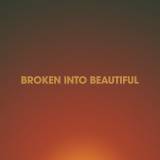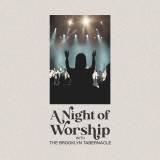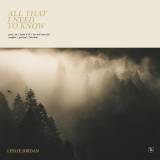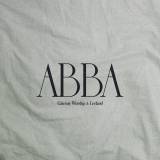Dear Church Musician: Stop Limiting Yourself

I love making music in the church, for the church, to the glory of God.
It’s one of the greatest joys of my life to craft songs, liturgies, services that tell the story of Gospel and help people find their place in it. There’s nothing like hearing the raised voice of a worshiping congregation and seeing the look on people’s faces when they are meeting Jesus.
It will never grow old.
However, I want to talk about another side of the coin if you are a worship musician. If you play music in the local church you’ve probably noticed a trend, at least I have.
Music has become a means to an end.
A great means and a great end, but still, music has become a tool to execute a worship service. I find myself only playing my instrument when I have to prepare for Sunday or when I’m writing a song.
Get Lost
Let me ask you this – when was the last time you simply got lost on your instrument? When was the last time you learned something new? When was the last time you slowed down to appreciate the beauty of sound and the music making process?
Every musician needs context to explore, to create, to learn outside the confines of learning worship songs for Sunday. If that’s all you’re doing, you’re selling yourself short.
I remember when I was learning how to play the piano. I never liked classical music. I felt like it was a waste of time because I wanted to play worship music. I played a handful of classical music from Bach to Mozart to Haydn to Beethoven to Brahms, Chopin, and Debussy. But I never took it seriously. Today, one of the most refreshing activities for me is to sit down with a composer and learn from them. Time stands still.
When I was younger, I had a small musical paradigm. And I notice many young musicians today do as well.
You know the conversation well.
“Dad, I want to play guitar.”
“OK, son, here’s an acoustic guitar to get you started.”
“No, I want to play electric guitar.”
When you expose yourself to music that is different than your preference or what you “think” you want to do, you actually develop a more original, unique sound. I remember the first time I heard Muse’s debut album. The way they combined classical piano with stadium rock was so refreshing. It’s when you combine two seemingly opposed sounds that magic can happen.
Don’t get me wrong, I’m not one of those “worship music is terrible” people. I love it. I love to listen to it. I feel that it has an incredible place in the life of a Christian beyond just sounding original or creative – it draws our attention to the Savior and what He’s done. That will always have a special place.
Many local church musicians are snobby when it comes to bashing the songs they’re playing on Sunday. There’s no need for that. The simplicity of worship music is an intentional simplicity in order to encourage participation rather than spectating.
CONTINUED ON PAGE 2>>>>.
CONTINUED ON PAGE 2>>>>.
Dear Church Musician: Stop Limiting Yourself
 Reviewed by Admin
on
6:36:00 PM
Rating:
Reviewed by Admin
on
6:36:00 PM
Rating:
 Reviewed by Admin
on
6:36:00 PM
Rating:
Reviewed by Admin
on
6:36:00 PM
Rating:
















Post a Comment